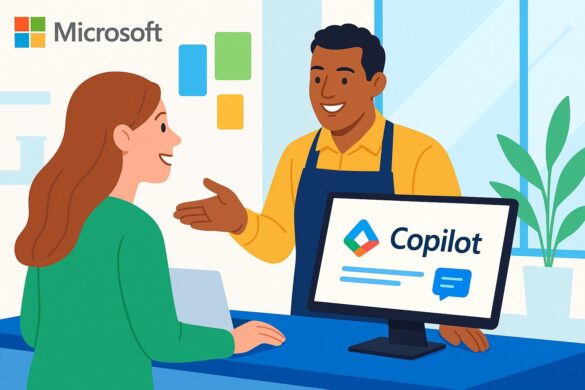Fake PayPal Invoice Scams Hitting Baton Rouge Businesses
A new PayPal invoice scam has targeted local businesses in and around Baton Rouge. The scam is especially dangerous since it looks like a legitimate PayPal invoice when it is an attempt to steal from you. For new or even experienced PayPal users, it can lead to an easy mistake followed by a loss of funds.
If you’re worried about this type of scam – don’t be. If you equip yourself with the right information and remain vigilant, you and your team can avoid falling prey to this scam. In this post, we’ll give you an overview of what to be on the lookout for. Read on to learn more about this fake PayPal invoice scam and what you can do about it.

What Should I Expect From This PayPal Fake Invoice Scam?
If you do any business, online or otherwise, you’ve likely paid via PayPal at some point. That means you’ve also likely received a PayPal invoice as well. These are usually emails sent to businesses requesting payment for goods or services. They can be a legitimate way for sellers and buyers to conduct business. The problem comes when you get an invoice from someone you don’t owe money. It’s a fake invoice scam.
This new fake PayPal invoice scam differs from others because it doesn’t ask for sensitive information or payment directly through the initial email. Instead, it sends out a fake invoice with an email address that appears to be official and asks that it be paid via wire transfer—all within a short time frame.
The scam is especially dangerous since it looks like a legitimate PayPal invoice when it is an attempt to steal your money. The scammers are hoping that you won’t notice the difference between a fake receipt and the real thing, and they’re counting on you being quick to pay up so they can get their hands on your hard-earned cash.
This scam uses fake invoices with “PayPal” written in the subject line, along with $25 or $50 charges for things like “Booking API Integration” or “Marketing.” They’ll use official company logos occasionally, making it look like this was sent from an actual business partner rather than just some random person who wants your credit card information.
How the Scam Works
Of course, each scam you encounter may use different terminology or strategies, but for this particular scam, here’s how it will occur (and how you should respond) from a step-by-step perspective:
- You receive an invoice from a stranger. The perpetrator is counting on you to panic at this point, as you’ll believe you are late on a payment of some kind.
- You’ll check the email address to see if it is a legitimate PayPal address. It may be engineered to appear close to an email address you know and trust.
- You’ll check the email header to see if the email came from a legitimate email provider. Often, the scammer will use what appears to be a legitimate email address, so be extra careful when verifying this.
The scammer is counting on you, viewing them as a trusted vendor and making the payment. There are many reasons for this – some individuals worry they missed a legitimate payment to someone who has provided services for them. In some cases, the logos and branding used as a part of the message match the company the person works for, which increases their trust even more.
Beware of Any PayPal Invoices You Receive
The existence of this scam is more evidence of why you should be hyper-vigilant when conducting business online. The message might look like it came from a legitimate business email address, but it’s not. In some cases, the sender may have made up their email account and used that as the source for their fraudulent messages.
The fake invoice emails are not sent from PayPal or any other company related to finances or payments; these are strictly scams designed to get money out of unsuspecting victims.
One tactic these scammers use is sending an invoice total that isn’t unreasonably high. For example, you may receive an email with an invoice for $796. This is below what most companies call their “threshold of pain.” It’s not necessarily low for a single payment, but for many companies, it isn’t an excessive amount they would question. That’s no reason to pay it, of course, but scammers are banking on companies and their unwillingness to investigate further for a nominal fee.
If you receive an invoice you consider to be fraudulent, don’t panic; instead, take these steps:
- Adopt a default position of demanding verification for anyone sending you an invoice. Don’t automatically assume you owe that money because you received an invoice.
- Feel free to contact the person requesting the invoice, but know that they may still try to scam you even after the fact.
- Keep detailed records of any outgoing payments you expect to make as part of your business. That way, you can consult your records whenever you receive an invoice.
If all else fails? Decline the invoice. You certainly don’t want to overlook or ignore any legitimate invoices, but better to be safe than sorry. If the invoice were, in fact, legitimate, the individual would certainly follow up with you for their payment. You may also want to alert your IT team about the incident, as it helps to keep a record of any attempted scams.
The bottom line? Verify any invoices you receive. If anything about it appears suspect, do the additional work before issuing payment. It’s much easier to do that research upfront as opposed to recovering the payment once you’ve made it.
If you’re a Baton Rouge or New Orleans area business looking for guidance on navigating cybersecurity and tech, look no further: Essential Solutions has you covered. For more on how we can help, contact us today.



